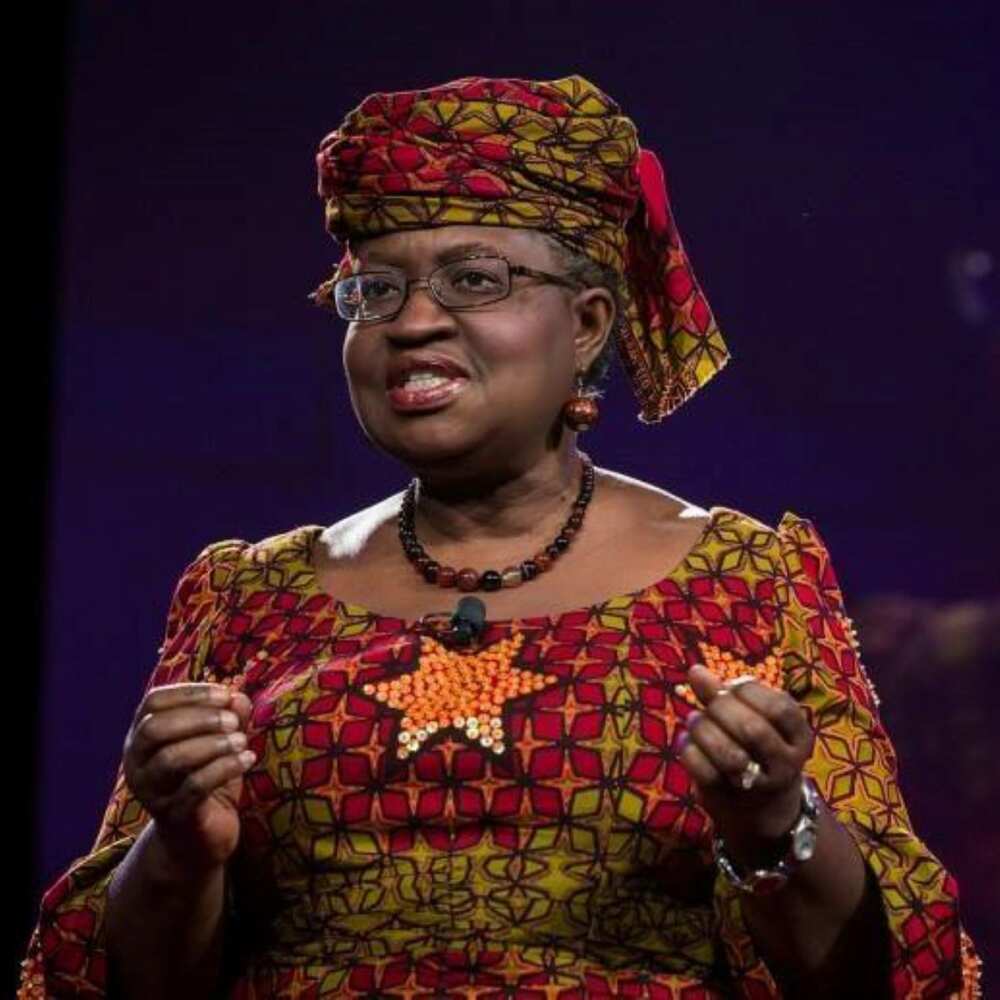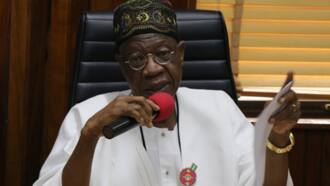Nigeria's Trade Cost Too High To Attract Investments, Okonjo-Iweala Tells Buhari
- President Muhammadu Buhari has been told why investors may not be attracted to invest in Nigeria
- A former Nigeria's minister of finance, Dr Ngozi Okonjo-Iweala said the cost of trade in Nigeria is very high
- Okonjo-Iweala said the growing insecurity challenge across various parts of the country is also a factor hindering both local and foreign investments
PAY ATTENTION: Click “See First” under the “Following” tab to see Legit.ng News on your Facebook News Feed!
As the Nigerian government continues to seek ways to improve its economy, the director-general of the World Trade Organisation, Ngozi Okonjo-Iweala, informed President Muhammadu Buhari that Nigeria’s trade costs are too high.
Okonjo-Iweala said the national cost of trading and its policies is too high to attract foreign investments.

Source: Facebook
Insecurity as a hindrance to foreign and local investment
Speaking virtually on day two of the mid-term ministerial performance review currently ongoing at the Presidential Villa in Abuja, Okonjo-Iweala said there is a need to improve on Nigeria's security challenges and other industries to attract both domestic and foreign investors.

Read also
Exercise Books, Textbooks, other Print materials to Become more Costly as Cost of Paper Imports hit N1.23trn
PAY ATTENTION: Subscribe to Digital Talk newsletter to receive must-know business stories and succeed BIG!
Vanguard reports that the former minister of Nigeria's economy said it is important for the country to downsize its trade, infrastructural, linage, regulatory, customs and every other cost affecting investments.
She said that the high cost at Nigerian ports have continued to discourage investment as they make it difficult to build supply chain operations across Nigeria.
Nigeria's trade costs so far
Okonjo-Iweala said:
“Nigeria’s trade costs are too high. According to the World Bank-ESCAP trade costs for 2019, trade costs for African countries are on the average equivalent of a 304 per cent tariff and for Nigeria, it’s even slightly higher at 306 per cent."
“These numbers are one and half times higher than trade cost in high-income countries. Such high costs are not conducive to forming regional value chain."
Meanwhile, Legit.ng previously reported that Nigeria's vice president, Professor Yemi Osinbajo, had called on the Central Bank of Nigeria to allow the naira exchange rates to reflect market realities on the ground.
Osinbajo said the current rate of the currency in the market is artificially low and further prevents investors from bringing foreign capital into the nation.
According to the vice president, the current situation of forex in the Nigerian economy is preventing foreign direct investments.
Also, Legit.ng previously presented a list of states across the country that cannot survive without federal allocations.
These states namely: Bayelsa, Jigawa, Katsina, Adamawa, Yobe, Niger, Taraba and Benue cannot survive without handouts from the government at the centre.
Source: Legit.ng

